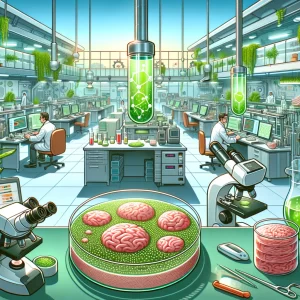
What’s Next in Science? June 20, 2025
So we’ve been making a ton of changes, so be sure to browse the site to see. We’ve also been doing a lot of refine of our methods to makes sure the best and most relevant stuff gets in front of you. With that in mind, here’s what’s coming up next week!

Colorectal cancer cell line-derived organoid model with stem cell properties captures the regrowing state of residual cancer cells after neoadjuvant chemotherapy
Researchers have developed a new model using colorectal cancer cell line-derived organoids to study the regrowth of drug-resistant cancer cells after chemotherapy. By performing single-cell RNA sequencing, they identified subpopulations of non-cycling cells expressing protein translation-related genes and discovered that inhibiting RNA polymerase I with the drug BMH-21 significantly reduced tumor regrowth. This finding suggests a potential new therapeutic target for colorectal cancer, addressing the major challenge of drug-tolerant residual cancer cells that often lead to recurrence and treatment failure in cancer therapy.
Can shifting attention to accuracy reduce misinformation on social media? A replication and extension in China
A study replicating the inattention-based theory of misinformation spread, originally by Pennycook et al. (2020), highlights that in China, social media users often unintentionally share COVID-19 misinformation due to inattention rather than confusion or intentional deceit. The research demonstrates that prompting users to consider the accuracy of unrelated information before sharing leads to better discernment between true and false content, suggesting this intervention could serve as an effective, scalable strategy to combat misinformation across different cultural contexts. This is significant as it offers an alternative method for misinformation management, relying on enhancing users’ cognitive engagement rather than extensive fact-checking.



